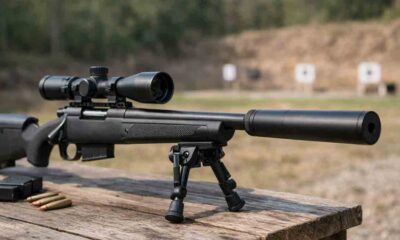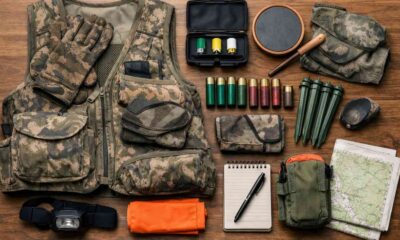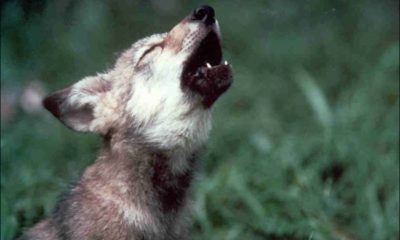Adventure
Do Tracking Dogs Count as “Fair Chase”?
Release the hounds, Smithers…
The use of tracking dogs to recover a game animal is as old as the partnership between Man and Dog itself. However, the line between using a scent hound to find a dead animal and using a scent hound to pursue a live one is exquisitely fine. Most people agree that it’s not okay for a hunter to let his prey go to waste, and that dogs are an excellent way to ensure that doesn’t happen. That said, training a dedicated tracker dog is not necessarily within the grasp of many (if not most) dog owners.
In some places it’s perfectly legal; in others, not.
The rules about using tracking dogs have loosened over time in many places in America. Again, there’s good reason for that. No ethical hunter wants to waste a game animal, and no wildlife biologist wants to miscount that year’s harvest or miss a case of CWD that needs to be tracked. So the question of whether it’s legal can be answered by looking up your local hunting laws. The question of whether it’s ethical also seems to be fairly clear (with some caveats). But when it comes to trophies and having those recognized by the Pope & Young and Boone & Crockett organizations? That’s a different matter entirely.
P&Y has released their guidelines on the use of tracking dogs, as follows:
Pope and Young, America’s leading bowhunting organization recently updated their position statement on the use of tracking dogs. Pope and Young has always promoted the fair and ethical pursuit of games species, and as an organization constantly reviews stances on the wide variety of issues that can impact fair chase, and the harvest and recovery of game.
TRACKING DOG POSITION STATEMENT (Amended 9-30-21)
The Pope and Young Club recognizes that the use of tracking dogs to locate a wounded animal is becoming an increasing popular tactic and is being legalized in many jurisdictions. The Club supports the philosophy that it is the responsibility of an ethical hunter to expend all reasonable effort in recovering a wounded animal.
To the same degree, though, the Club believes it important that a hunter learn and master the traditional practices of blood trailing and tracking. These skills are inseparable components of a well-rounded hunter and are important woodsmanship values of the overall experience. Further, the Club is concerned that certain technologies and practices can be used as a crutch and actually supplant the basic skills expected and desired of a bow hunter.
As such, the Pope and Young Club will accept record book entries recovered with the use of trained tracking dogs with the following conditions/provisions:
1. The use of a tracking dog(s) must meet ALL state or provincial laws in the jurisdiction you are hunting that governs the use of tracking dogs for wounded animals.
2. The dog must meet all local requirements concerning training and/or licensing.
3. The recovery must be completed within 48 hours of the initial shot and the hunter MUST be present.
4. The dog may be used to recover a dead big game animal only. If the animal is found alive, the use of a tracking dog must be abandoned immediately.
The final determination of eligibility for entry of all animals found alive and later taken will be at the Records Committee’s discretion.
What do you think? Are tracking dogs “fair chase,” or an excuse to release the hounds? Tell us in the comments!
-

 Adventure1 month ago
Adventure1 month agoSHOT Show 2026: The Most Important New Outdoor Gear Announced in Las Vegas
-

 Gear2 months ago
Gear2 months agoSuppressors in the Outdoors: Safety, Legality, and Ethical Use in 2026
-

 Camping & Survival4 weeks ago
Camping & Survival4 weeks agoWinter Road Status Checks Before You Access Public Land
-

 Fishing3 weeks ago
Fishing3 weeks agoWinter Fishing Safety: Ice, Cold Water & Abort Criteria
-

 Gear7 days ago
Gear7 days agoSpring Turkey Hunting Preparation: Safety, Scouting Checklist, and Shotgun Patterning





